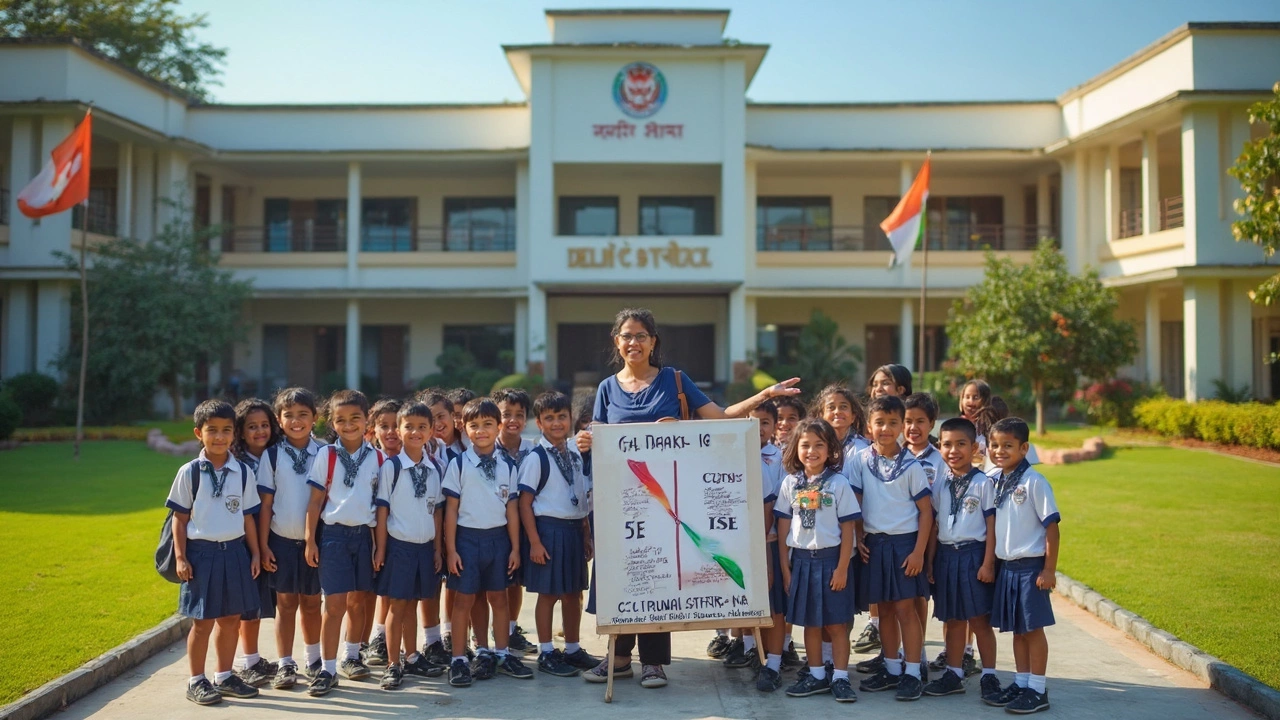ICSE Board – What You Need to Know Before Choosing It
Thinking about the ICSE board? It’s the Indian Certificate of Secondary Education run by the Council for the Indian School Certificate (CISCE). The board is popular because it focuses on English, practical lab work, and a balanced mix of subjects. If you want a solid foundation for college or competitive exams, ICSE can be a good fit.
Key Features of the ICSE Curriculum
First, the syllabus is detailed. You study English every year, which helps with communication and writing skills. Science subjects have hands‑on labs, so you actually do experiments instead of just reading theory. Math is taught with clear steps, and the board includes humanities like history, geography, and civics, giving a well‑rounded education.
Second, the exam pattern is tough but fair. The final exams are taken in Class 10, covering all subjects you studied. Marks are split between theory and practicals, so you can’t rely on just memorising. This pushes you to understand concepts and apply them.
Third, the grading system is on a 100‑point scale, which many students find easy to track. You also get a separate certificate for Class 12 called the ISC, which many colleges recognize for its academic rigor.
ICSE vs CBSE – Quick Comparison
People often ask which board is harder: ICSE or CBSE. The short answer is that ICSE is considered more demanding because of its deeper syllabus and emphasis on English. CBSE, on the other hand, is designed to align with national competitive exams like NEET and JEE, so it focuses more on science and maths basics.
In practice, ICSE students tend to have better writing skills and a stronger grasp of concepts across subjects. CBSE students may find it easier to score well in entrance exams because the board follows the same pattern. If your goal is to improve overall academic ability and you don’t mind the extra work, ICSE is worth considering.
Here’s a quick cheat sheet:
- English: ICSE – mandatory every year; CBSE – optional after Class 9.
- Science labs: ICSE – extensive practicals; CBSE – basic labs.
- Math focus: CBSE – more practice for competitive exams; ICSE – conceptual depth.
- Exam difficulty: ICSE – tougher theory + practicals; CBSE – simpler theory.
Choosing between them depends on your learning style and future plans. If you enjoy reading, writing, and hands‑on experiments, ICSE will keep you engaged. If you aim for engineering or medical entrance exams, CBSE might give you a smoother path.
Bottom line: the ICSE board prepares you well for higher studies and real‑world skills. It demands consistent effort, but the payoff is a strong command over language and analytical thinking. Talk to teachers, check school facilities, and decide which board matches your goals.
Confused about whether Delhi Public School follows the ICSE or CBSE curriculum? This article explains which board DPS schools usually follow, the reasons behind their choice, and what it means for your child's education. You’ll get tips for picking the right board, learn how the CBSE syllabus stands out, and see what matters most for college and competitive exams. The guide also shares real facts about DPS school branches and their curriculum choices.
